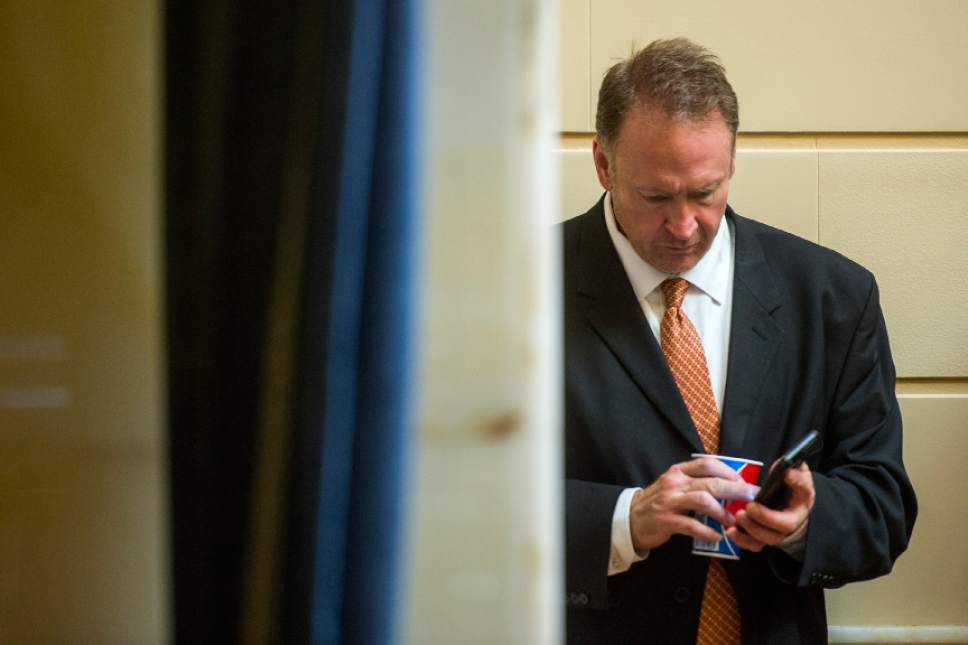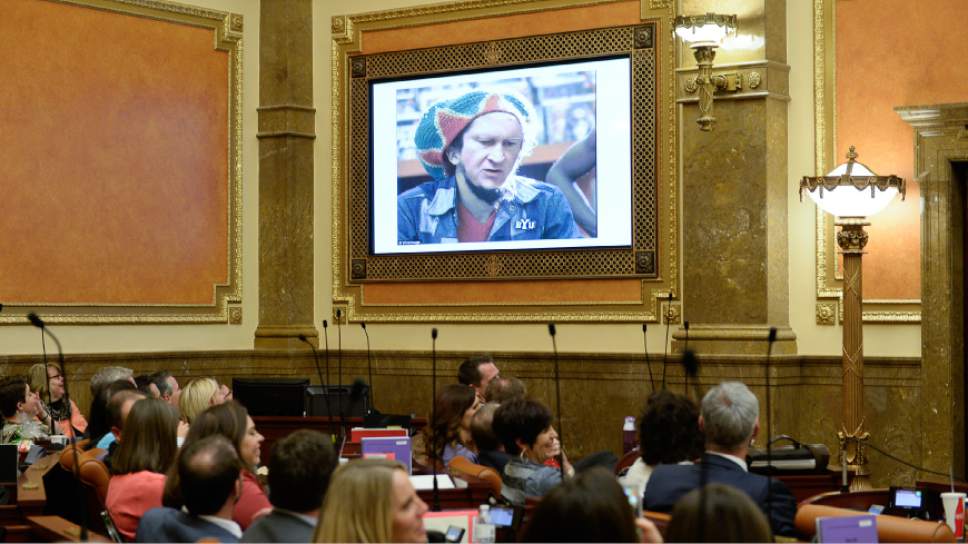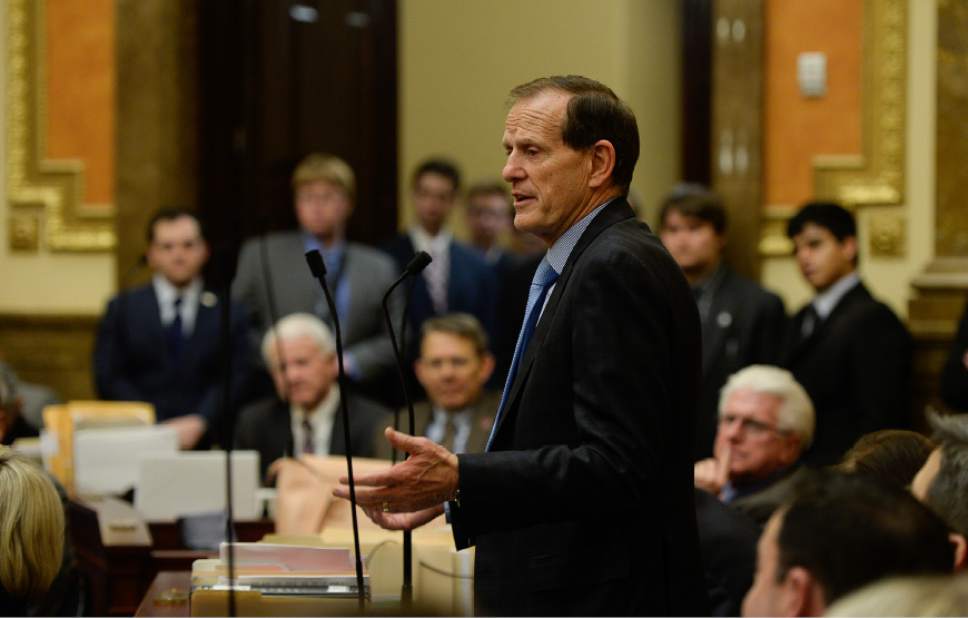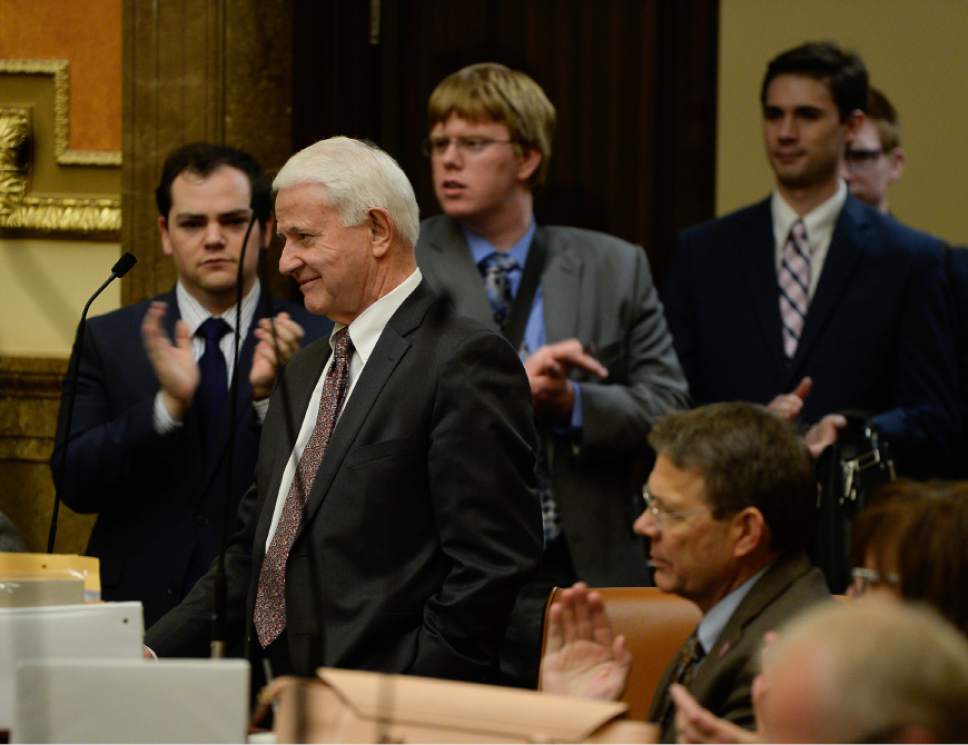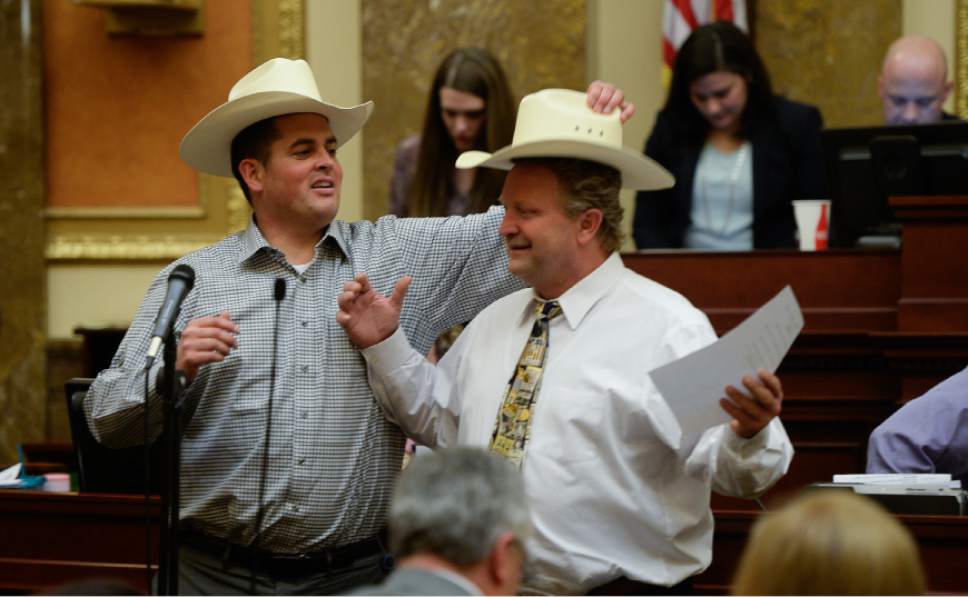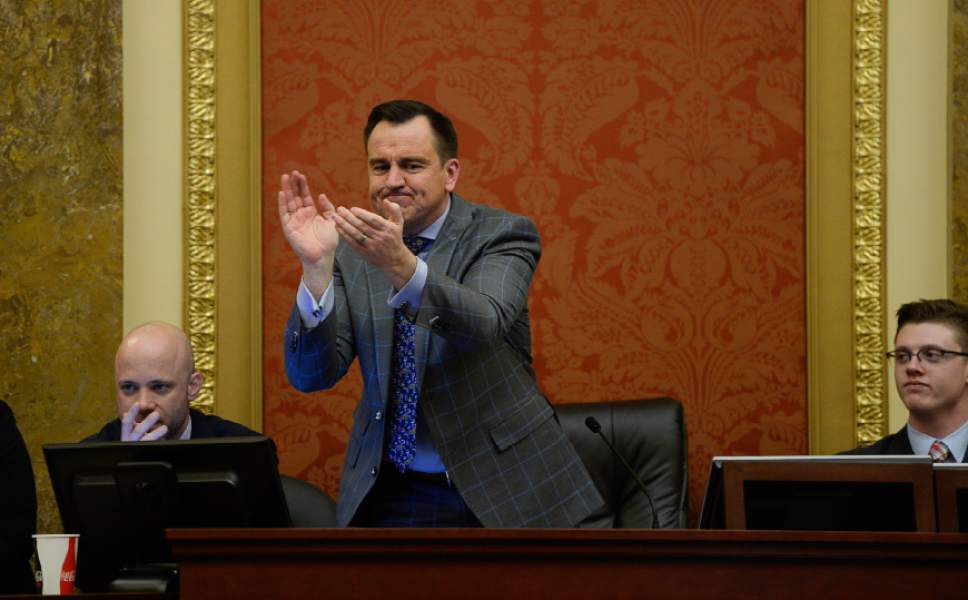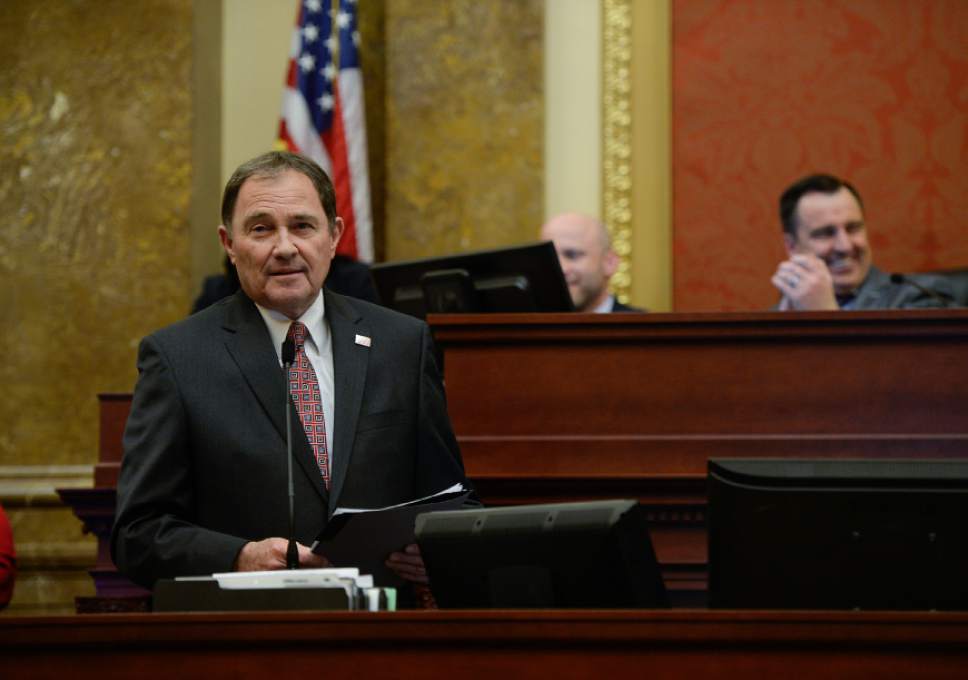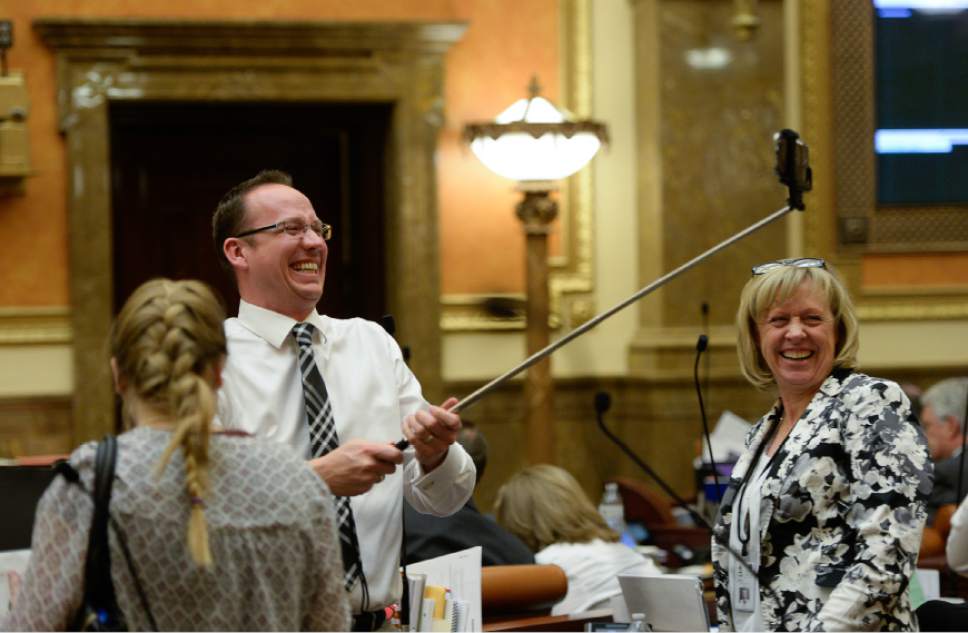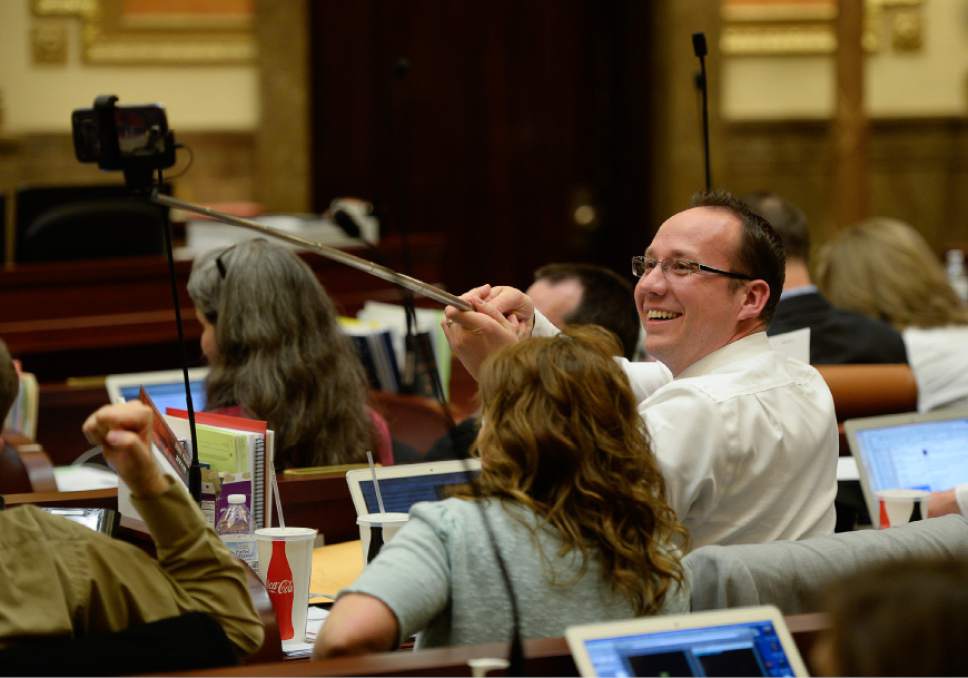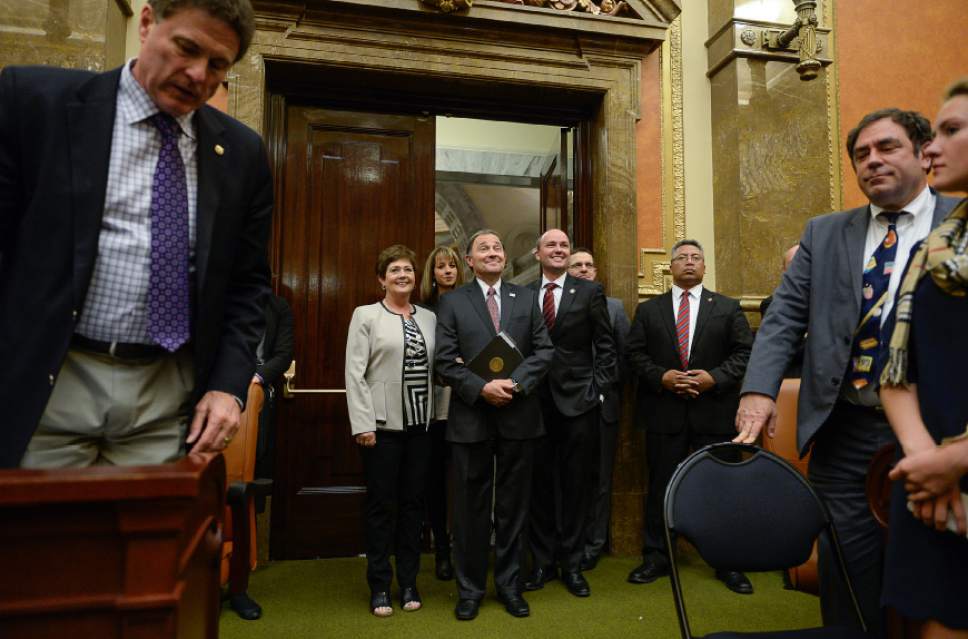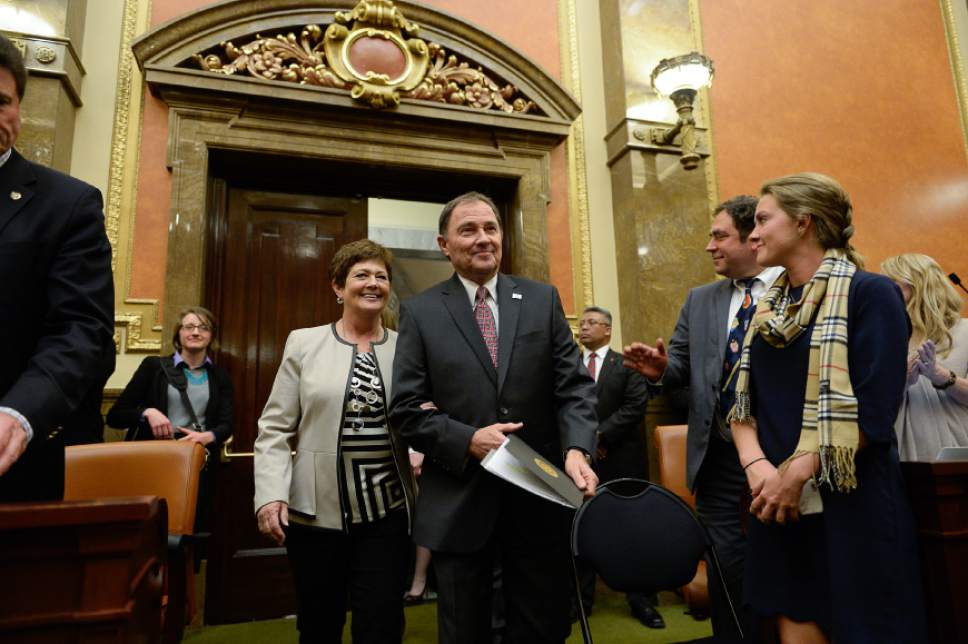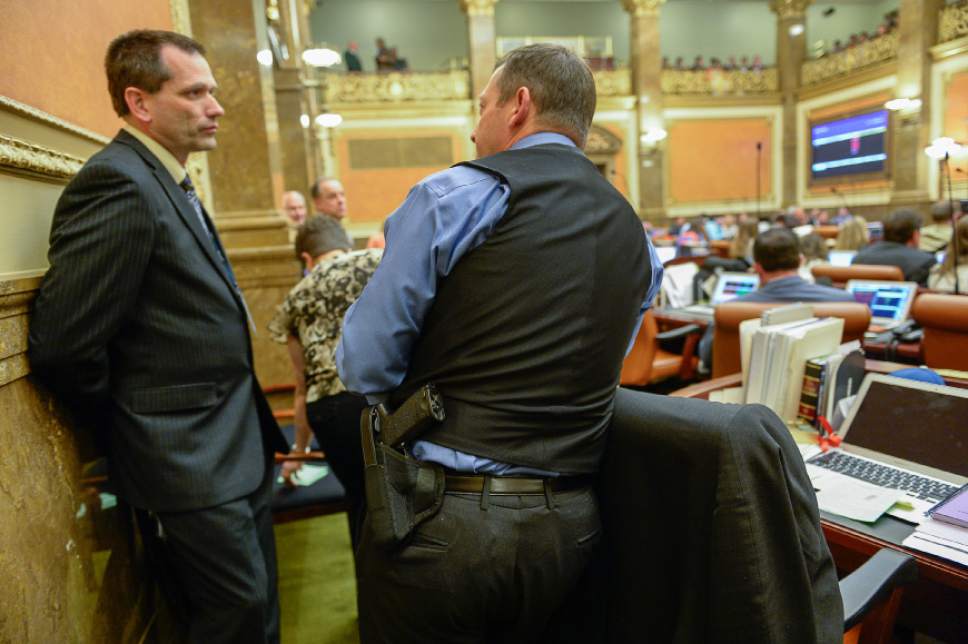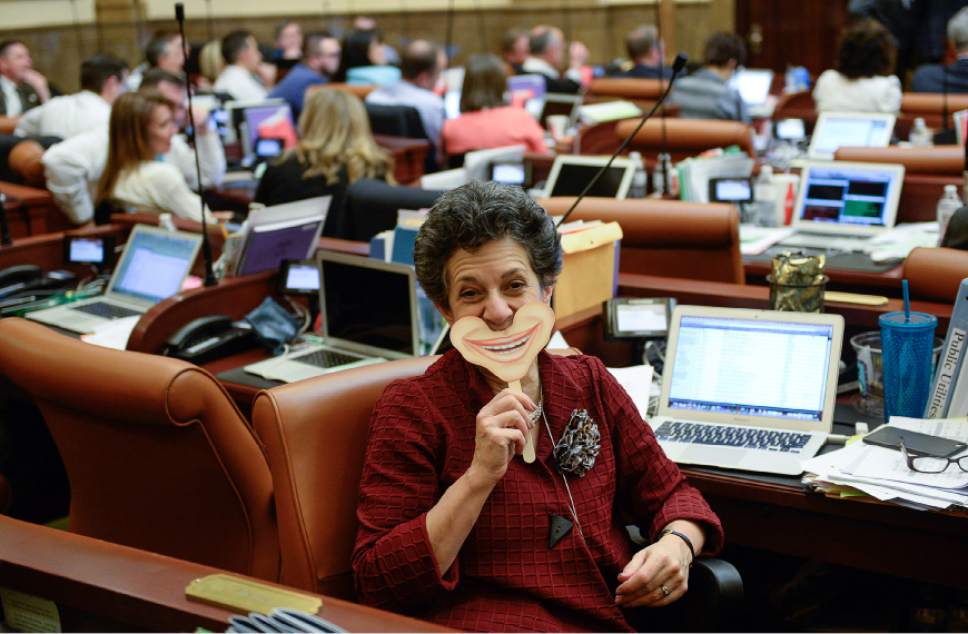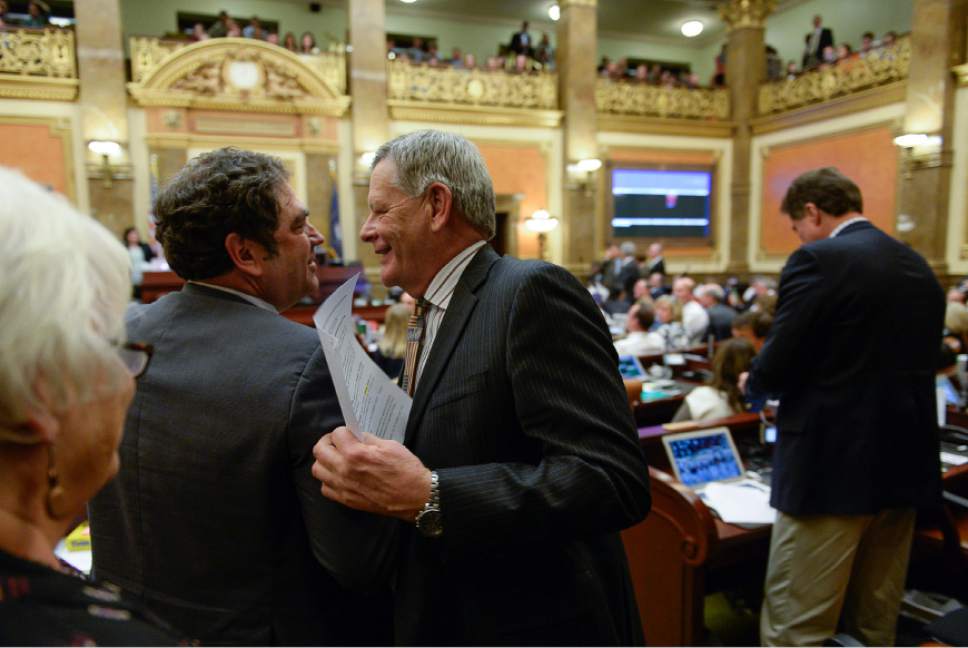This is an archived article that was published on sltrib.com in 2016, and information in the article may be outdated. It is provided only for personal research purposes and may not be reprinted.
The 2016 legislative session drew to a close Thursday after flirting with, but ultimately rebuffing, uncharacteristically progressive legislation repealing the death penalty, outlawing hate crimes and legalizing medical marijuana.
Meanwhile, lawmakers pumped hundreds of millions into public and higher education, took predictable steps toward filing a $14 million lawsuit to assert state ownership of federal lands, further restricting abortions in the state and pouring tens of millions of dollars into a coal port in California and future water pipeline projects in northern and southern Utah.
"I actually feel pretty good. This may have been one of our better sessions," said Republican Gov. Gary Herbert. "By and large, I feel very good about the work of the Legislature. I think they get, if not an A, an A-minus."
The GOP-dominated Legislature, among the most conservative in the nation, broke starkly with tradition in taking up progressive issues.
"You know what, the Senate clean lost its mind," laughed House Speaker Greg Hughes, R-Draper.
The driving force was two Republican senators, St. George Sen. Steve Urquhart, who pushed for the death-penalty repeal and enhanced penalties for hate crimes, and Saratoga Springs Sen. Mark Madsen, who led the fight for medical marijuana.
Both are retiring at the end of their terms this year.
A drastically overhauled medical marijuana bill was poised for a House vote on the final night and the House sponsor, Rep. Brad Daw, R-Orem, said he had the votes to pass it, but legislators did not have the $800,000 left needed to implement the bill this year, leading to its demise.
On hate crimes, Urquhart blamed opposition from The Church of Jesus Christ of Latter-day Saints for peeling away at least three votes, leading to the defeat of his legislation to toughen penalties for bias-motived crimes.
Meanwhile, supporters of his death penalty repeal bill worked frantically to get the bill to the House floor, but it was abandoned before the midnight deadline.
Hughes, who supports abolishing the death penalty, said he doesn't expect to see such a proposal back in Utah's Capitol for some time.
"I think that might have been lightning in a bottle," he said. "I think this was a unique year and I don't think we'll see that [again] any time soon."
Adam Brown, a political science professor at Brigham Young University who tracks the Legislature, said he can't explain the break with tradition this year.
"I've thought about this all session, about how strange it is we've seen this series of bills," he said. "It blows my mind to see these kinds of bills and I'm not sure what [explains it]."
Herbert said that, to some extent, the issues brought to the Legislature defy simple labels.
"It's hard to put things in boxes and give everything a label," he said. "There might be some libertarianism [on those issues]. Is that progressive?"
On other issues, the Legislature behaved much more traditionally.
Budget leaders put together a $14.7 billion spending plan that includes a total of $440 million to public schools and higher education, $18 million more than the governor had requested. Of that, $15 million will go to putting technology in classrooms — far less than the $100 million the Utah Board of Education had requested — and $3 million for an early reading program.
The allocation pays for roughly 9,700 new students expected to enroll in Utah schools and increases per-pupil spending by about 3.75 percent.
"I'm pleased that the Legislature recognizes the significantly important role education plays in having a healthy economy," Herbert said, "so we're in alignment there in terms of education being our No. 1 budget priority."
A pitch to invest $53 million of state funds to develop a port in Oakland, Calif., that could ship Utah coal to China and other countries drew strong opposition from environmental groups and a California lawmaker — but ultimately passed the Utah Legislature and is likely to be signed by Herbert, who has expressed support.
After years of failed attempts, the Legislature finally passed a very narrow program to provide health-care coverage to 16,000 of the very poorest in the state with a preference for those with physical disabilities, mental illness and individuals recently in jail.
The Medicaid expansion approved would leave about 45,000 people below the poverty level without coverage and is well short of the more ambitious plans backed by Herbert in the past. But the governor said it could serve as a valuable first step.
"I'm grateful that we have something done and something is certainly better than nothing," Herbert said. "It takes care of 16,000 of those Utahns who are most vulnerable in our society, so this is certainly a step in the right direction. "I think there's more to the journey and a lot depends on the presidential election and who's in the White House next year."
Initiatives to improve air quality struggled, with little money dedicated to replacing outdated air-quality stations and for incentives to replace polluting equipment. A bill to provide subsidies to oil refineries aimed at speeding up the production of cleaner-burning gasoline died unexpectedly.
Rep. Patrice Arent, D-Millcreek, said in past years she has felt good about the Legislature's work on air quality. "This year it's mixed," she said. "Some good bills passed. Some good bills failed."
Salt Lake City and County got a big boost in trying to alleviate homeless issues, receiving a total of $9.5 million as the first installment in a $27 million effort to focus on creating shelters where homeless families can be apart from the general homeless population, among other things.
"I feel great because it's a collaborative effort," said Pamela Atkinson, a homeless advocate and adviser to the governor. "I think what I like about it is the fact everybody is coming. There's been much more interaction up here on the Hill by elected officials, there've been many more efforts at collaboration than ever before."
And lawmakers set aside $4.5 million for a potential lawsuit asserting Utah is entitled to ownership of more than 30 million acres of federal land in the state borders. That funding will go into an account created to accept contributions from private donors.The Legislature also passed a resolution calling for action on the lawsuit.
"I think we're moving down the track," said Rep. Mike Noel, R-Kanab, one of the leaders of the push for more state control of the public lands. "In terms of what we accomplished this year, we've got all the tools in place."
Twitter: @RobertGehrke


